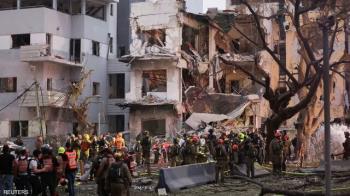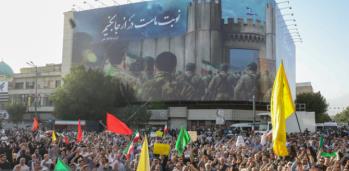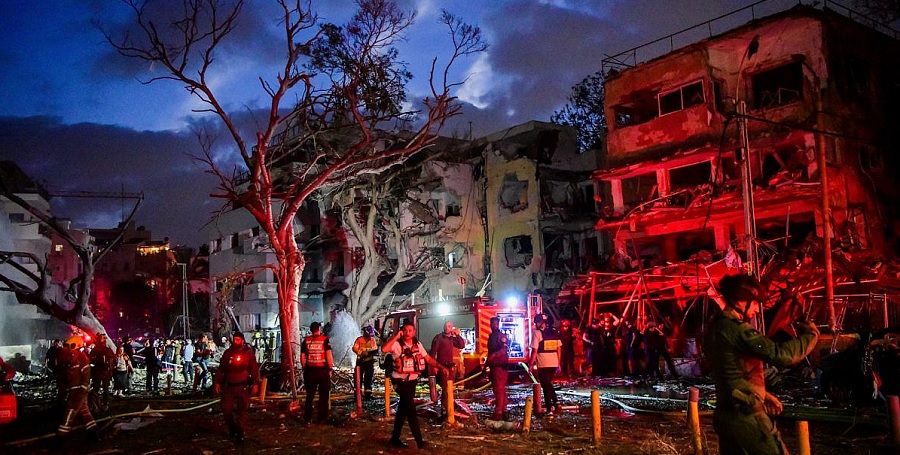Alwaght- Hours after Iranian missile strikes on the US's Al-Udaid airbase in Qatar and then Al-Taji base in Iraq, the US President Donald Trump in a surprise move announced a ceasefire between the Israeli regime and Iran. The ceasefire took effect 7:30 a.m Tehran time on Tuesday and to the last moments, Iran kept firing heavy missile waves in response to the Israeli aggression. The last wave was a missile attack on the Negev Desert and Be'er Sheva that killed at least 11 Israeli settlers. It was after this attack that Persian and Hebrew media outlets confirmed the ceasefire between the two sides.
Israel's acceptance of the ceasefire came after Israeli Prime Minister Benjamin Netanyahu had previously announced the possibility of a regime change in Iran as a result of the aggression against Iran, but the controversial Israeli PM suddenly announced the acceptance of a ceasefire in the war with Iran on the twelfth day of the war.
Dead end in war aims
It seems that the Israeli regime has reached a deadlock in achieving its main goals in its aggression against Iran. Tel Aviv had officially announced two main goals in the war with Iran: destroying Iran’s nuclear program and dismantling Iran’s missile capabilities. However, the Israelis were unable to achieve either of these goals, because neither a nuclear program can be eliminated by missile strikes, nor can Iran’s missile program be easily weakened. Until the last minutes of the ceasefire announcement, Iran launched its most intense wave of ballistic missile attacks on the occupied territories, inflicting the most severe human and financial blows on the Israelis.
Experts had previously said that an Israeli and American attack on Iran’s nuclear program and ballistic missiles is unlikely to achieve Tel Aviv’s long-term strategic goals.
Even according to The Guardian, there is much doubt about the effectiveness bunker-busting bombs on Iran's Fordow nuclear facility, and it is still unclear whether the recent attack by American bombers on Iran's nuclear facilities was able to destroy these facilities.
Accordingly, it seems that Tel Aviv concluded on the twelfth day of the war with Iran that it had failed to achieve its main goals of destroying Iran's nuclear and missile programs over the past two weeks.
Toby Dodge, a professor of international relations at the London School of Economics, told the BBC that the Iranian political system is more stable than it is being told, and that since Iran has a long history of commitment to modernization and technological development, Iran's capabilities cannot be easily destroyed with a bomb.
Daniel C. Kurtzer, a former US ambassador to Israel, and Steven N. Simon, a senior member of the US National Security Council, had previously predicted in Foreign Affairs that any US military operation against Iran would be met with retaliation from Tehran, leaving the US in a dilemma of continuing or ending the war. This prediction turned out to be correct, and after Trump bombed the Fordow facility, Iranian forces responded by launching missiles at the Al-Udeid base of the US, and Trump, fearing being caught in a new war of attrition in the region, abandoned the confrontation with Iran and announced a ceasefire.
Blind outlook of regime change in Iran
Regime change in Iran as a result of aggression on Tehran was one of the slogans of Netanyahu and other Israeli officials during the 12-day war. But outside Iran it seems many are against political changes in Tehran.
Iraq’s Shiite cleric Grand Ayatollah Ali al-Sistani has warned of the deep dangers threatening the region, while some European countries, including France, have called regime change in Iran through military action a destabilizing move. Andreas Craig, an associate professor in the Department of Defense Studies at King’s College London who has worked extensively in the Middle East, is skeptical that airstrikes alone could have the kind of impact Israel is seeking in Iran. “We have learned the lesson that air power alone does not work in other countries. We learned in Iraq and Afghanistan that even large numbers of ground troops do not work. What we are seeing in the Israeli operation is not a strategic approach, but an operational approach using air power, and this operational approach will collapse and not achieve results,” he said.
Why US involvement?
It should also be noted that Israeli regime has suffered operational exhaustion launching the war alone on Iran. According to the New York Times, if the US had not intervened in the war against Iran to support Tel Aviv, the Israeli army would have likely faced increasing challenges, as there were signs of a shortage of some interceptor missiles. After the US intervention, Trump, aware of the limitations and obstacles to continuing the war against Iran, pushed Netanyahu towards a ceasefire.
Earlier a Russian senator had said that part of the Trump administration was afraid of being dragged into the Middle East war. Aleksey Pushkev said that there was serious gaps inside the Trump administration about deeper involvement in Israel-Iran war.
The fatigue of Israeli air force crews for long-duration flights, aircraft maintenance cycles, and Tel Aviv's inability to run a prolonged conflict at the current level of tension led Tel Aviv and Washington to step first to call for a ceasefire with Tehran.



























